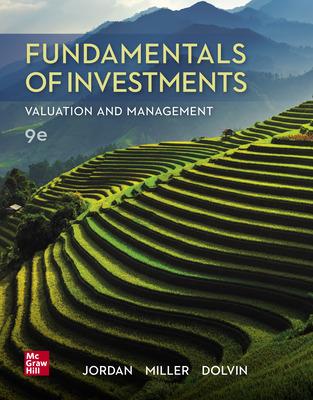4. In Chiarella v. United States: The Supreme Court held that Chiarella needs tb disgorge the profit obtained by trading a. on non-public information The Supreme Court ruled that mere possession of non-public information, did not trigger the duty to "disclose or abstain The Supreme Court upheld Chiarella's conviction for Insider Trading The Supreme Court ruled that Chiarella could not trade on the non-public information b. c. d. because he had fiduciary duties to companies' shareholders 5. In tipper-tippee liability case of Dirks v. SEC, the Supreme Court held that: Dirk could not be liable for tipping non-public information about the company to its clients because Secrist revealed the scandal to Dirk without obtaining any advantage for himself a. b. Dirks violated Rule 10b-5 because he revealed the scandal to company's clients for c. Dirks was liable for breach of fiduciary duty to the company's shareholders who suffered d. Dirks job as securities analyst precluded him from sharing any inside information with personal gain loss because clients dumped their stock before the scandal became public outside tippees under the "confidentiality" rule 6. In United States V. O'Hagan, the Supreme Court ruled that: O'Hagan was not liable for securities fraud O'Hagan did not violate insider trading rules because he did not have fiduciary duty to the company's shareholders The Court validated the misappropriation theory The misappropriation theory did not apply a. b. c. d. 7. Misappropriation of Tender Offer Information (Rule 14e-3) Prohibits anyone (other than the bidder) to trade on a material, non-public information obtained from the bidder or the target There is an explicit need, under Rule 14e-3, to prove that a tipper breached a fiduciary duty for personal benefit Only applies in the case of an already announced tender offer and covers "fraudulent, deceptive, or manipulative acts or practices" States that if a controlling shareholder decides to sell his/her stake (based on non-public a. b c. d. iformation) as a prelude to the purchaser's tender offe, s hei not lable under Rule 14e-3 8. What is a blackout period? a. A period when company's stock price is lower than the exercise price of the options b. A period of stock-trading activity an insider cannot remember during an SEC interview c. A period during which a company prohibits insiders from buying or selling stock d. A period during which a company prohibits insiders from exercising stock options








